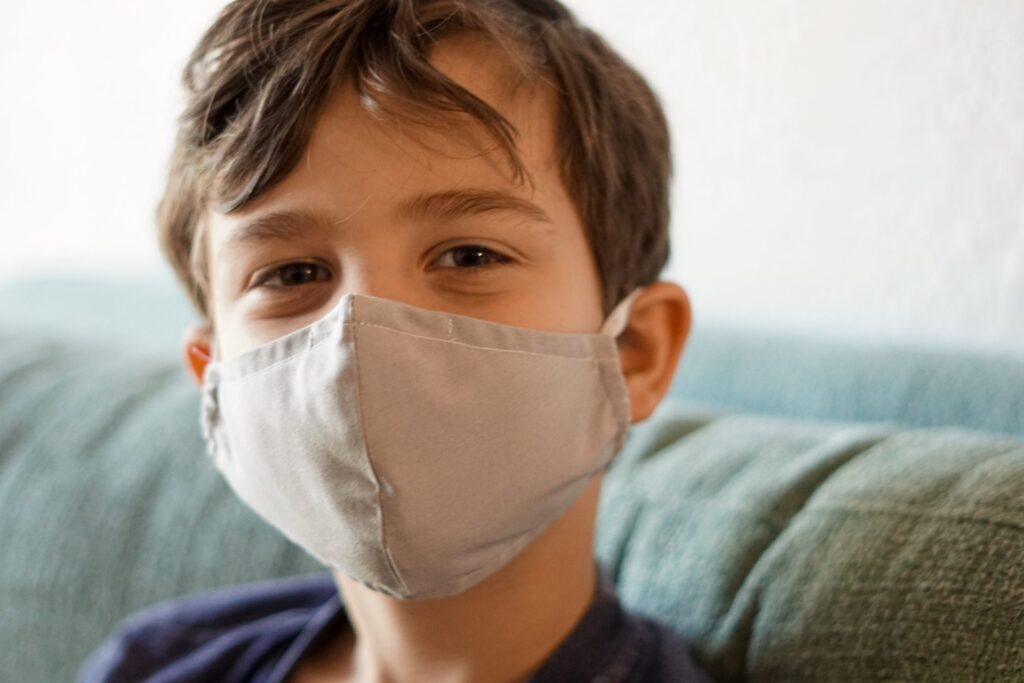This summer has been too short for many students to recover from the upheaval of last school year and most are feeling disappointed that we are not going to get the September that we were promised.
In July, the vaccinated were going maskless and we were told that we could have Fourth of July picnics. Now, right before school starts, we are back to wearing our masks because of the Delta Variant. Ugly battles between parents and teachers, politicians, and principals about mask and vaccine mandates are all over the news.
We were all hoping that they would not have to go through this anxiety again but they do. Many have to have COVID testing even before they go to school and are obligated to agree to more COVID tests throughout the year.
Noticing the signs in your child
How is your child coping? Is your college student excited about seeing friends and socializing after interacting remotely last year or are they worried that their college will close again? Is your elementary school student having trouble sleeping at night or crying easily? Is your middle or high school student irritable or spending endless time on the computer or phone?
Signs that your child is anxious about school vary by age. Younger children might start with school avoidance. They may say that their tummy hurts and they can’t go to school but maybe that is apprehension about going back. They may have tantrums, bad dreams, and other sleep problems. Loss of appetite is another sign of anxiety Some children have even become so fearful that they refuse to take off their masks, even while home. Avoidance is a hallmark of anxiety and being allowed to skip school one day oftentimes has the result of making it doubly hard to go the next day. Be very careful about letting your child skip school because of anxiety. It can turn into a big school refusal problem. Reach out to teachers and school counselors for help if your student has trouble going into school in the mornings. School anxiety usually resolves shortly after the school day actually starts.
In middle and high school students may go down a screen time rabbit hole. Their fear might manifest as them being unusually irritable and rude.
It is a different situation for college students because they usually live on campus. They may feel over contacted and overwhelmed when they are thrown back into multi-student housing. One of my college-age clients said that after a year of virtual school he must have expected that when we went back, college would be just as he left it, frozen in time. Unconsciously he felt he would fit back in just like a puzzle piece. He became depressed and anxious when this was not the case and his friends and professors had changed and evolved over the lost year, He had to process the truth that it would take some time for him to regain his equilibrium.
Taking the right steps to help your child cope with the pandemic
Fortunately, there are steps that parents can take and suggestions they can share to help their students in this difficult time.
Sleep is important. Over the summer and during virtual school, students may have been staying up late and waking up late. Early classes and early school start times make result in getting less than the optimum 7 hours of sleep at night. Lack of sleep can take a toll on physical and mental health and have a big effect on mood. When you are tired, your ability to cope with stress and setback is impaired and many people fall into anxiety and depression as a result. Having a set early bedtime is important so that your child can get at least 7 hours of sleep each night is key for them being flexible and resilient.
Take care of yourself. Parents can lead by example. Have a meta-discussion about your self-care strategies. When you are adjusting to changes in your work-life or schedule let your children know. Say something like “I had a busy day back in person at work and I am not used to being around so many people, so I am going for a walk outside to enjoy nature and have some peace and quiet.”
It is important to let your student know that they are not alone in feeling strange to be out of quarantine and meeting people in person. Everyone going back to interacting in person has ups and downs and good days and bad days and it is important to be open and honest about these very normal feelings. In my opinion, everyone should be giving themselves a pat on the back about powering through the weirdness.
Reality test catastrophizing. It’s unhealthy. Schools in our area are doing everything they can to remain open and keeping our students safe. Being able to socialize is important for student’s development. The news seems to be stating that approval of vaccines for children under 12 will be coming soon. Be sure your child is not overestimating the risk of going back to school in person. Reinforce that masks are effective and using hand sanitizer and washing hands thoroughly is another way that we keep each other safe at school. Remind them that the COVID virus only lingers for a few seconds on surfaces. Tell them that everyone in the school had to have a COVID test to start school if that is the case in your area.
Middle and high schoolers may be concerned that after such a long break they will not be able to handle the day-to-day social interactions at school. Some may be worried about power struggles and even bullying, that can take place in in-person school. Parents can help by encouraging their children to be assertive and develop boundaries between themselves and students that interact negatively with them.
Encourage good communication
Students who think they might have nothing to say to their friends can be helped by brainstorming conversations that they could initiate with their friends beforehand. That is not cheating, it’s smart!! Generate open-ended conversion starting questions with them like:
“What did you do over the summer.?
Did you go anywhere?”
“What’s your favorite class so far?”
“What shows did you watch on Netflix over the summer?”
“What did you do last weekend?”
“What are your plans for this weekend?”
If they are disappearing into screens after school, Let them know that screen time when you get home to unwind is OK but help them find a balance with other activities such as family time, friend time, and outdoor time. Encourage them to make plans with friends like outdoors biking, roller skating, hiking, or going to the mall. This can provide much-needed distraction from anxiety and a needed change of scenery.
Give it time
Many of these jitters will resolve as time passes and predictable routines and coping strategies evolve. If you have tried the above strategies and interventions and your child’s school anxiety interfering with their lives it might be time to contact an anxiety expert to help them learn how to manage their fears



